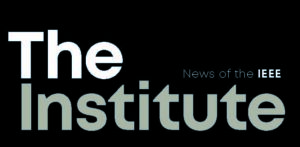Startup Lowers the Cost of Cloud Services by Harnessing Idle Computers
THE INSTITUTE For many small businesses, cloud-based products such as Amazon Web Services and Microsoft Azure are too expensive. They are looking for affordable alternatives that still provide a variety of features.
The founders of Nakamoto & Turing Labs say their company has developed a product for them. The startup’s Pekka cloud-computing platform uses blockchain technology to connect customers who want compute-intensive services with people around the world who want to rent them their idle computer.
The startup was founded by IEEE Senior Member Chong Li, Member Lei Zhang, and Member Sichao Yang, who is the CEO. All three were coworkers at Qualcomm, in San Diego. They launched the startup in 2018 and have raised US $2 million. The company has six employees in its New York City office and seven at its office in Hangzhou, China.
“Nearly 70 percent of computer processing power goes unused daily in the world—which is a big waste for computer owners,” Yang says. “There are powerful machines such as home gaming computers and computing machines in private data centers that are not being used most of the time. We provide an incentive to [computer owners] to share their machines on our platform.”
LESS EXPENSIVE ALTERNATIVE
Revenue from cloud computing was expected to exceed $200 billion this year. It has been growing annually by about 16 percent, Yang says.
Roughly $25 billion of that revenue is generated by individuals and small businesses.
“These companies want to use inexpensive, secure, and reliable Web services, but there are still no perfect solutions for them on the market,” Yang says. “We started our business to serve them.”
Pekka can reduce a business’s cloud-computing costs by up to 90 percent, he says. The company charges a 10-percent commission to connect cloud-computing clients with those who want to rent out their computers.
Currently, the Pekka platform provides several popular machine-learning frameworks and tools, plus storage, the open-source Web application Jupyter Notebook, and other services. Other offerings the company expects to launch soon are image rendering and blockchain-as-a-service.
Pekka is in beta testing now. N&T expects to launch its commercial version in May. The company has filed two U.S. patent applications for the platform, Yang says.
 PEER-TO-PEER SHARING
PEER-TO-PEER SHARING
Blockchain’s decentralized technology provides security and privacy for data on shared computers, Yang says. Unlike current cloud-based Web services in which personal data and proprietary data go to the service provider, Pekka has no tracking mechanism on its central server, nor does the platform store the user’s data, he says. In that sense, he says, Pekka is a peer-to-peer shared computing service.
“Customers can segment their data and submit jobs to multiple geographically distributed machines belonging to different providers,” he says. “The blockchain technology makes sure the jobs run in a secure and trusted environment in a decentralized way.”
Go to IEEE The Institue to read the complete article.






